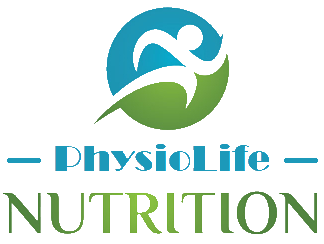
Food is a huge part of our society and for good reason, it is the life force that keeps us going on day after day. Because of this, it has become the center of focus of so many aspects of our lives. We have three meals a day, plus snacks. Celebrations, get-togethers, even business meetings involve food these days. Everywhere you look there is a restaurant, a fast food joint, a grocery store, or some other retail operation that provides food. With food this central to our society, it is no wonder that we have weight issues and disordered eating in such abundance as we do.
Eating is closely related to the release of serotonin. This is a hormone that is linked to mood. This is where emotional eating comes in. When we are stressed out, sad, tired, bored, angry, or experiencing any other multitude of feelings, we can get a quick escape by grabbing something to eat, and more often than not it is for something sweet that we grab. This sugar addiction is similar to the experience that a drug addict feels after a hit of heroin. Yes, that is right, sugar addiction is very much like heroin addiction. LSD and sugars both affect the tryptophan absorption levels in your brain which is what serotonin is made from. This high level of absorption, however is only temporary, leaving you with a low and a craving soon after.
Some symptoms of emotional eating are as follows:
- Cravings of certain foods
- Feelings of anger, stress, anxiety, loneliness, boredom, low self-esteem
- Not stopping eating even when full
- Eating out of habit rather than hunger
- Eating when not hungry
- Sudden and urgent hunger
- Eating at unusual times
If you are unsure as to whether or not you have an emotional eating problem, visit http://psychologytoday.tests.psychtests.com/take_test.php?idRegTest=1599 and take their quiz. This will help you to identify what drives your hunger.
There are many ways that you can attempt to remedy this chemical imbalance. Obviously, there are a multitude of medications that are now available including Prozac, Effexor, and many others. However this isn’t always the best choice. Natural ways to combat serotonin imbalances, and thus emotional eating and sugar addiction include the following:
- Food + Mood Journal – If you keep track of what you eat, when, and how you feel before and after eating, you will be able to track patterns of what mood and what foods are your triggers. This will help you to break these patterns and create healthier ones.
- Get out in the sun – Much like photosynthesis in plants, sunlight leads to the production of serotonin in our bodies.
- DE stressing activities(yoga, meditation, bubble bath, walk, etc) – Stress can induce high levels of cortisol, which can throw off your levels of serotonin as well. If you can relieve this stress and lower your cortisol levels, your serotonin has a much better chance of being in balance as well.
- Exercise – Exercise releases endorphins which are feel good hormones that are also linked to serotonin.
- Wait 15 minutes before you eat – If you are eating out of boredom, chances are if you make yourself wait before you eat, you will find that you aren’t hungry anymore. If you are truly hungry, you will still be hungry after that 15 minutes and you should eat something healthy.
- Cure your boredom – Eating out of boredom can obviously be cured by beating boredom. Go out and do something, watch a movie, read a book; do anything that will keep your mind busy.
- Change your setting – Sometimes it is best just to get out of where you are. If you are stuck in the house, go to the park or a friend’s house. Simply changing your location can change your mindset.
- Stop procrastinating – A lot of times we eat so that we can avoid doing something by fixing up a meal or simply getting up and perusing the fridge. The best way to beat this is to simply get done what you need to. You will feel much better after because your stuff will be done and you wouldn’t have needlessly snacked.
- Get support – Sometimes the best way to combat emotional eating is to find the root of the emotions that are making you want to eat. Going to see a counselor or talking to a therapist or support group can be incredibly beneficial. There is nothing wrong with seeking support. Even just talking to a friend or family member can be helpful.
- Remove temptation – If you know that there is a certain food that triggers you or that you cannot eat only a little of a certain food, then don’t keep it around your house. This way, if you want it, you will have to rouse yourself to go and get it and you can get only a little rather than having lots stored around your house.
- Get enough sleep – Tiredness can cause you to grab something to eat as a pick me up. Usually this means sugary coffee drinks or some other sugary energy drink. By simply getting enough sleep, you can cut all of those sugary drinks out of your diet.
- Don’t deprive yourself of calories – It is natural for your body to crave food when it is going through starvation. If you are eating enough food, these cravings will subside.
- Supplements –
- Vitamin D – Most people are deficient in vitamin D, which is helpful in mood regulation.
- 5-HTP – This is what tryptophan is made into before it is converted into serotonin. Most of these supplements also include B6, which is necessary for this conversion.
